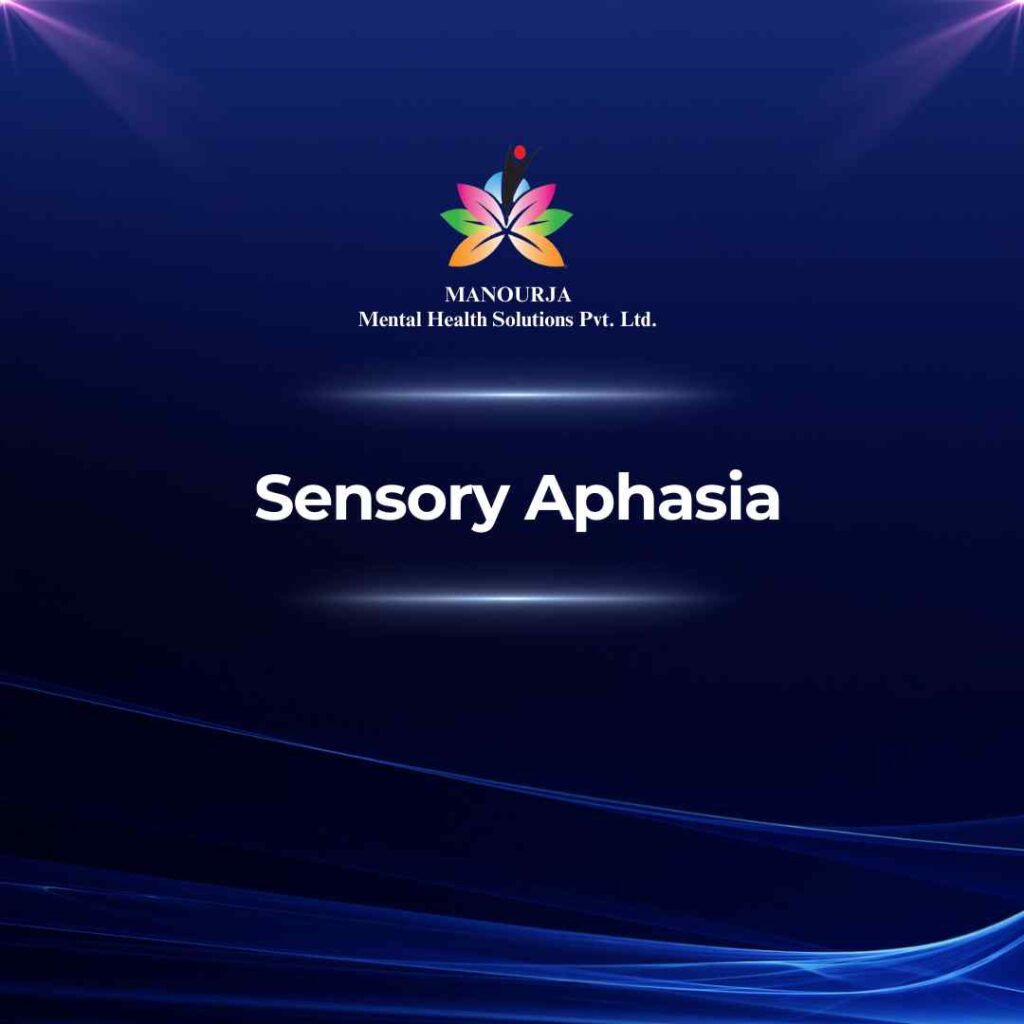Sensory Aphasia

“Sensory aphasia,” also known as receptive aphasia or Wernicke’s aphasia, is a language disorder characterized by the inability to understand spoken or written language. This condition occurs despite the individual typically being able to speak fluently, though their speech may lack meaning or coherence due to the inability to comprehend language.
Sensory Aphasia as a Sign and Symptom of Mental Illness
Sensory aphasia is primarily a result of damage to the brain, particularly the Wernicke’s area in the left temporal lobe, which is responsible for language comprehension. While it is not directly a symptom of mental illness, it can be associated with neurological conditions that affect cognitive function. People with sensory aphasia can speak in long sentences that have no meaning, add unnecessary words, and create made-up words. As a result, their speech can seem nonsensical to others.
Mental Illnesses and Neurological Conditions with Sensory Aphasia as Symptoms
- Stroke: A stroke that affects the Wernicke’s area of the brain can lead to sensory aphasia. This is one of the most common causes of this condition, resulting from a disruption in the blood supply to this region.
- Traumatic Brain Injury (TBI): Injuries to the brain, especially those that impact the left temporal lobe, can cause sensory aphasia. This can result from accidents, falls, or any other form of head trauma.
- Brain Tumors: Tumors located in or near the Wernicke’s area can interfere with language comprehension, leading to sensory aphasia. Depending on the size and growth rate of the tumor, symptoms can gradually worsen over time.
- Infections: Severe infections that affect the brain, such as encephalitis, can damage the areas involved in language processing, resulting in sensory aphasia.
- Dementia: Some forms of dementia, particularly those that affect the temporal and parietal lobes, can lead to sensory aphasia. Alzheimer’s disease and frontotemporal dementia are examples where language comprehension can be severely affected.
Managing and Treating Sensory Aphasia
Treatment for sensory aphasia focuses on improving language comprehension and communication abilities. This often involves a multidisciplinary approach:
- Speech and Language Therapy: Speech-language pathologists (SLPs) work with individuals to improve their language comprehension and communication skills. Therapy may include exercises to enhance understanding of spoken and written language, as well as strategies to improve overall communication.
- Medical Intervention: In cases where sensory aphasia is caused by a stroke, traumatic brain injury, or infection, addressing the underlying condition is crucial. This may involve medication, surgery, or other medical treatments to manage the primary cause.
- Rehabilitation: Comprehensive rehabilitation programs, including physical, occupational, and cognitive therapy, can help individuals regain lost functions and improve their quality of life. These programs are tailored to the specific needs of the individual.
- Supportive Communication: Family members and caregivers play a critical role in supporting individuals with sensory aphasia. Learning effective communication strategies, such as speaking slowly, using simple language, and using visual aids, can help improve understanding and reduce frustration.
- Assistive Devices: Technology, such as communication boards, speech-generating devices, and computer programs, can assist individuals with sensory aphasia in expressing themselves and understanding others.
By addressing the underlying causes and providing targeted therapies, individuals with sensory aphasia can improve their language comprehension and enhance their ability to communicate effectively.
At MANOURJA, we believe in the transformative power of counseling. Our experienced therapists offer a safe and supportive space where you can explore your thoughts, emotions, and challenges. Through personalized counselling sessions, we’ll work together to develop coping strategies, build resilience, and achieve lasting positive change. Discover the path to a healthier, happier you with MANOURJA counselling services.
MANOURJA Rehabilitation Services
At MANOURJA, we’re dedicated to helping you in rebuild your life, after difficult times. Our rehabilitation services focus on understanding what you need to move forward, whether you’re recovering from addiction, trauma, or any psychological – social challenges. We create personalized plans, that are all about helping you, regain your strength and find hope again. With a caring team by your side, you’ll have the support to make real progress and take steps toward a brighter, healthier future.
